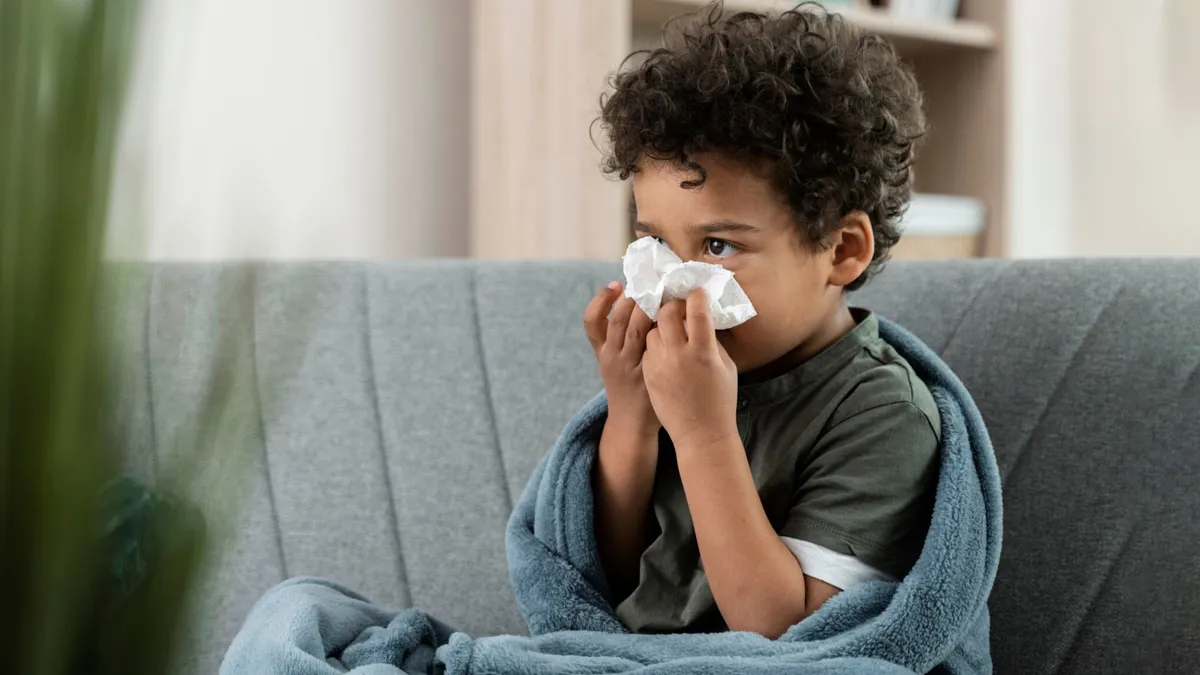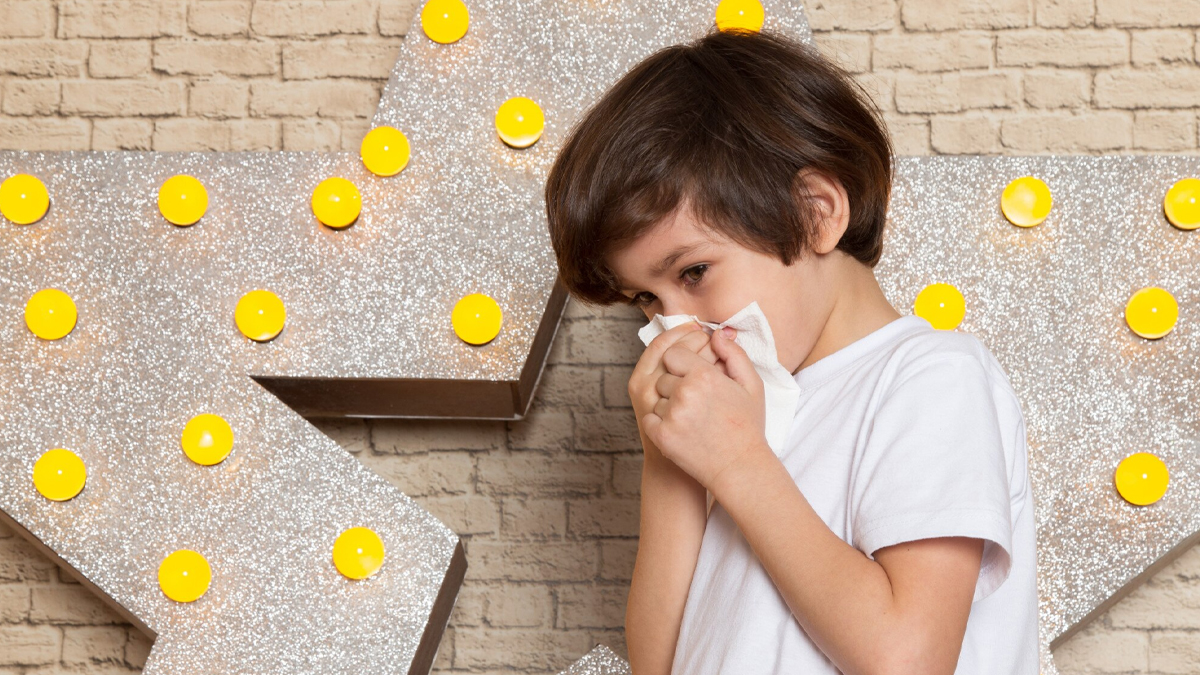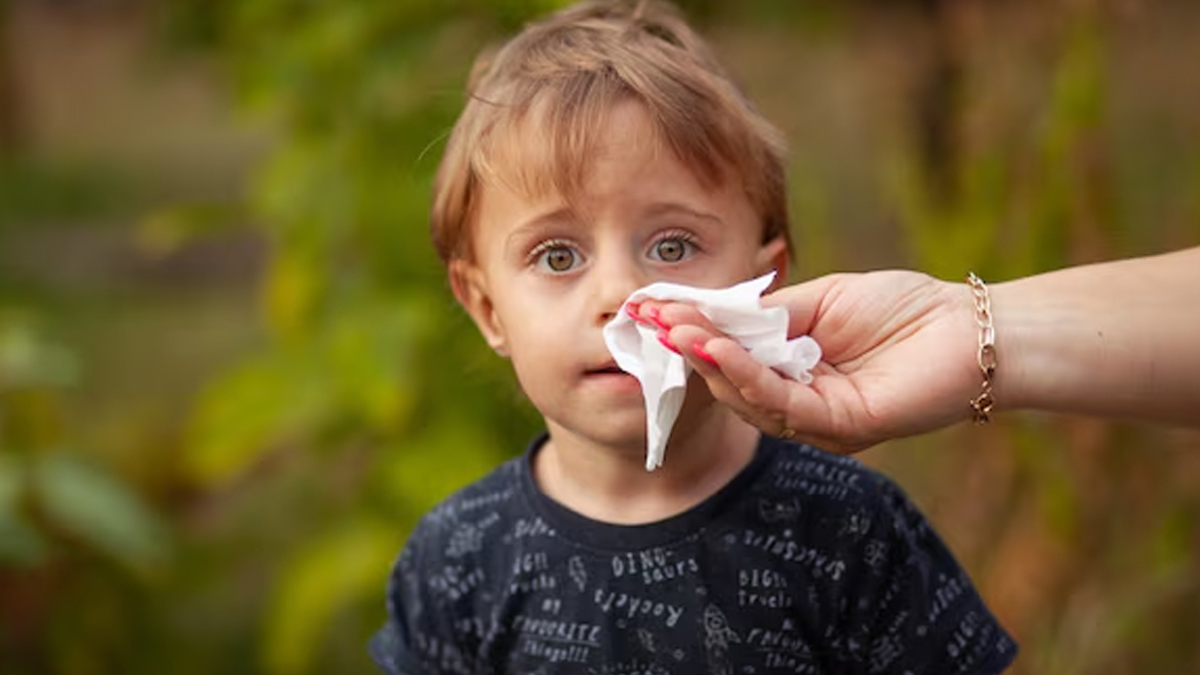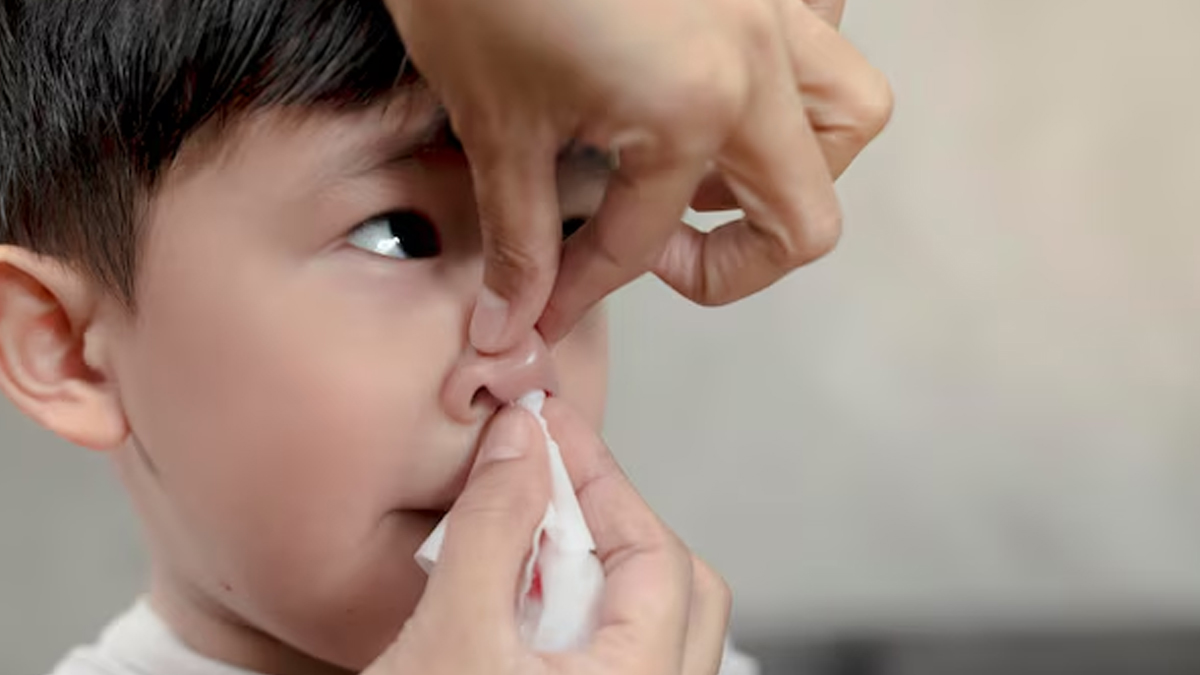
As alarming as nosebleeds can seem, especially in young children, they are quite common, often caused by minor injuries like nose picking or dry air irritating the delicate blood vessels inside the nose. However, it is still important that you identify the sole cause of nosebleeds in kids, as some instances might indicate a serious underlying cause.
Table of Content:-
In an interaction with the OnlyMyHealth team, Dr Krishna Prasad, Consultant Paediatrician, Motherhood Hospitals, Electronic City, Bengaluru, sheds light on the most common to rare causes of nosebleeds in children.
Also Read: Dry Bleeding Nose: Simple Home Remedies For Quick Healing
Most Common Causes Of Nosebleeds In Children

According to Dr Prasad, nosebleeds are common in most children as a result of minor irritation like picking at their nose, rubbing noses, or bumping heads lightly.
"Also, colds, sinus infections, and allergies cause swelling of the nose and can rupture some small blood vessels," he adds, sharing that these resolve quickly and uncomplicatedly.
Additionally, dry air and indoor heating during winter months can also cause dehydration of the nasal lining, making one more susceptible to nosebleeds. Moreover, pollen and dust may also irritate the nose, which, in turn, can cause nosebleeds in children susceptible to such bleeding.
Rare Causes Of Nosebleeds In Children

It is important to note that certain unusual medical conditions can also cause nosebleeds in children. These include:
- Haemophilia
- Platelet and bleeding disorders
- Rare vascular malformations
“Extremely infrequently, some tumours can induce nosebleeds, but normally in combination with other manifestations, not by themselves,” Dr Prasad shares.
Also Read: Nosebleeding For No Reason? Expert Lists Some Of The Possible Causes
How Can Parents Manage Nosebleeds In Children?

In general, nosebleed, also known as epistaxis, is one of the most frequent ear, nose, and throat emergencies observed in both primary care and emergency settings. According to StatPearls Publishing, it occurs most commonly in children aged 2-10 years old and older people between 50 and 80.
For parents of children who have repeated nosebleeds, Dr Prasad advises, “It is essential to keep the inside of the nose wet—a petroleum jelly or saline spray will work. Along with their other benefits, running a humidifier in a child’s room during drier months can prevent nosebleeds.
“Also, early treatment of allergies, stopping nose picking, and managing irritants can significantly help to prevent nosebleeds,” he adds.
Conclusion
While nosebleeds in children are usually harmless and often linked to minor issues like dryness, allergies, or nose picking, parents should not ignore repeated or severe episodes. Most cases can be managed at home with preventive measures such as keeping the nasal passages moist, reducing irritants, and treating allergies early. However, if nosebleeds are frequent, heavy, or accompanied by other symptoms, it is best to consult a doctor to rule out any serious underlying condition.
Also watch this video
How we keep this article up to date:
We work with experts and keep a close eye on the latest in health and wellness. Whenever there is a new research or helpful information, we update our articles with accurate and useful advice.
Current Version